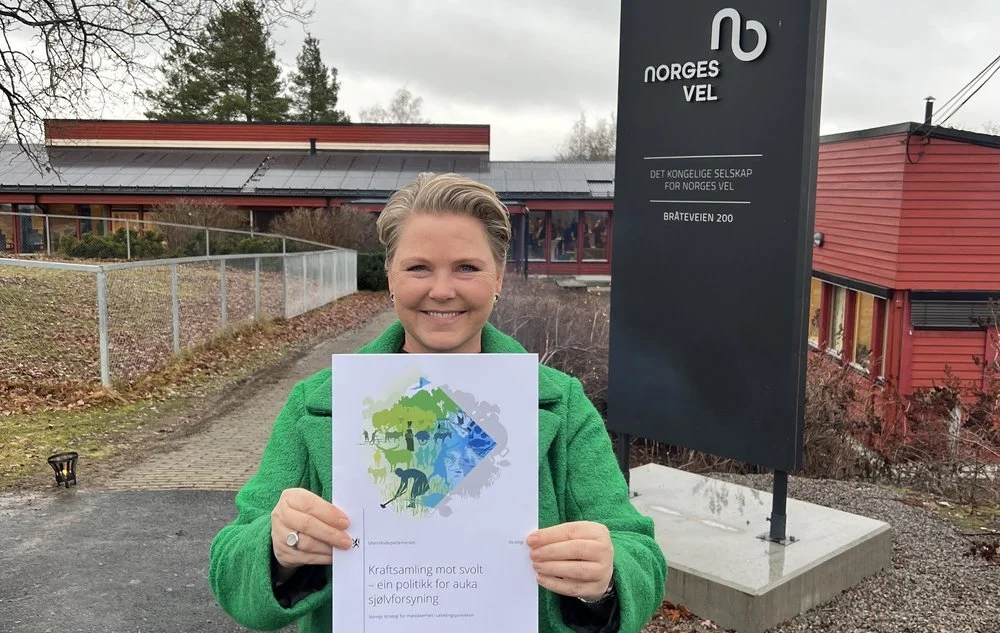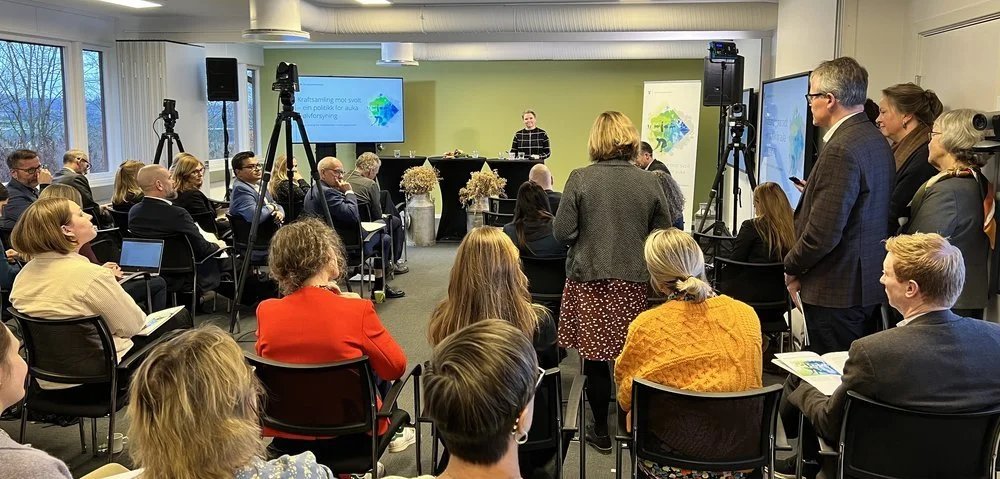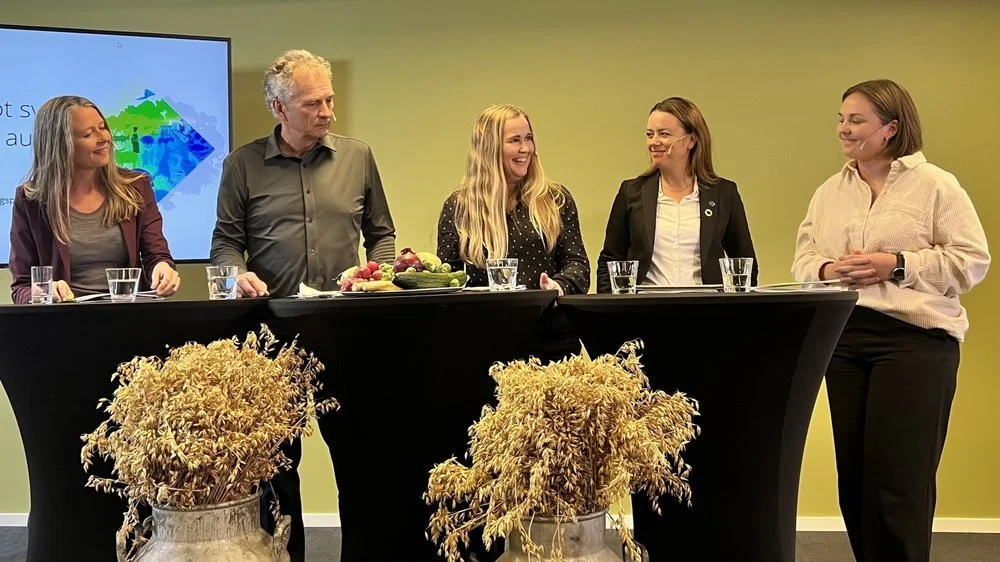Norway's new strategy to combat hunger and enhance global food security
Anne Beathe Tvinnereim, Photo: Syver Zachariassen
Tuesday 29th of November, the Minister of Agriculture and Food Sandra Borch, other politicians, and employees in the industry were gathered at Hellerud Gård for the launch of Norway’s new strategy to combat hunger and enhance global food security - "Kraftsamling mot svolt – ein politikk for auka sjølvforsyning".
Food security and the fight against hunger are the main priorities in Norwegian development policy.
-The pandemic, climate, and war mean that we may be facing an unprecedented global food crisis. To counter rising hunger, the government is now taking a strong stance. With this strategy, we are bringing together the current food security efforts by focusing on small-scale producers of food and their value chains. We will contribute to increased self-sufficiency in developing countries, says Tvinnereim.
The strategy is part of the Government's work on food security and the fight against hunger, and their efforts to change food systems in developing countries. Many developing countries depend on foreign imports to safeguard national food security, and since the pandemic and the Russian invasion of Ukraine, the vulnerability of the global food systems has become particularly visible. The strategy aims to contribute to a more robust food system that is based to a greater extent on local and national food production.
Many people showed up for the launch. Foto: Syver Zachariassen.
Focus on the organization of farmers
The strategy highlights the importance of organizing farmers, the significance it has for increased income for small-scale food producers, how it provides a more balanced distribution of power in the food system, and greater local value creation. The strategy also emphasizes that there is a great potential for more effective climate adaptation if small-scale producers are organized.
Tvinnereim highlighted Norwegian agriculture and the breakthrough for cooperative models at the beginning of the 1900s, and how the organization of farmers at that time led to the created values remaining with the organized farmers.
- In many developing countries, this type of organization is a distant dream. In many places, small-scale farmers stand alone when dealing with those who sell them seeds or fertilizers, or when they sell their products, often unprocessed, at a market, sais Tvinnereim
In line with Norges Vel’s international work
Norges Vel has worked with the organization of farmers for 170 years and has since 1979 incorporated this long experience into our international work. Therefore, it is positive to see a strategy where small-scale food producers are lifted high on the agenda, and that there is a clear focus on organization, local value chains, and climate adaptation.
- There are many reasons to support the focus of the strategy on the organization of small-scale producers, including cooperatives. Not least in what we know will be a time when climate change hits faster and more brutally than before, and where standing together in larger units will be the closest thing many small-scale producers come to an insurance policy, says Anita Sæbø, Director of International Development at Norges Vel.
I paneldebatten deltok FV: Hildegunn Gjengedal fra Bondelaget, Øystein Bottillen fra Yara, Anita Sæbø fra Norges Vel, Maria Wiik Markhus fra Havforskningsinstituttet og Eise Åsnes fra Spire. Foto: Syver Zachariassen.



